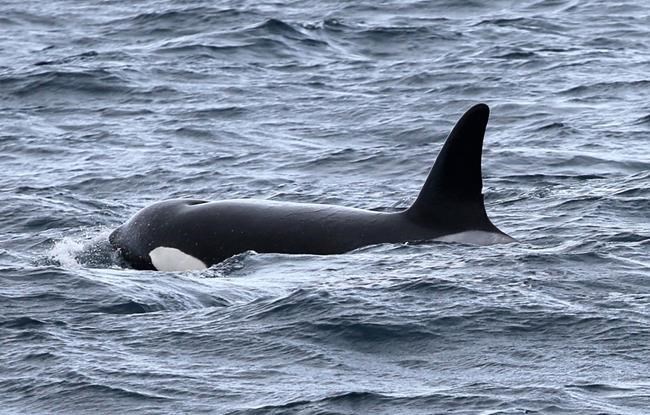VANCOUVER — Researchers from the University of British Columbia say they've identified a potentially new population of open-ocean orcas, that hunt the biggest predators on the planet.
In a newly published study, researchers say a group of 49 orcas has been observed hunting sperm whales off the coast of California and Oregon.
Lead author Josh McInnes says in a news release that in one case orcas were seen hunting a herd of nine adult sperm whales, "eventually making off with one."
Researchers say the orcas that were observed in nine encounters from 1997 to 2021 could either belong to a subpopulation of transient killer whales or a unique oceanic population.
Co-author Andrew Trites from the UBC institute for oceans and fisheries says it's "pretty unique" to find a new population of killer whales given the time needed to gather photos and recognize the animals as different than previously known populations.
The report says researchers were able to identify the orcas as possibly a new group partially because of cookie-cutter like shark bite scars seen on the animals, noting that the species of parasitic sharks involved live in the deep ocean.
Researchers say they also observed physical differences such as patches on their fins and saddle.
They say they hope to document more sightings and data from the new population in order to investigate exactly how different these orcas are from other documented populations.
This report by The Canadian Press was first published March 15, 2024.
The Canadian Press



